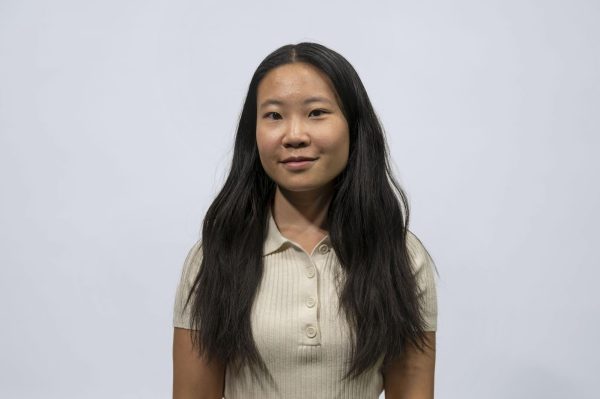More than 400 individuals, including more than 300 Massachusetts healthcare workers, have signed an open letter dated April 16 urging hospitals and healthcare institutions to implement greater protections for vulnerable patients amid the Trump administration’s crackdown on immigration.
The open letter, sponsored by the Health and Law Immigrant Solidarity Network, or HLISN, condemns the Trump administration’s reversal of a policy that designated certain locations, including hospitals, schools and places of worship, as “sensitive locations.” The policy, which dates back to 2011 and was expanded by the Biden administration in 2021, prohibited U.S. Immigration Customs Enforcement, or ICE, agents from surveilling, interviewing, arresting and searching suspects in the designated “sensitive locations” without prior approval.
“I signed the petition to advocate for health institutions to push back and make sure that hospitals and clinics are welcoming spaces. That includes protecting them as spaces where folks won’t face immigration horseman or ICE detainment,” said Dr. Avik Chatterjee, a primary care physician in Boston, in an interview with The News. Chatterjee is among the signers of the letter.
Dr. Lauren Kearney, a pulmonary and critical care fellow at Boston Medical Center and an HLISN member, said the goal of the letter is to ask the Trump administration to reverse its decision about sensitive locations and ask local healthcare institutions to implement measures to keep immigrant patients safe.
“We feel we have more influence to make sure that we are doing everything we can to keep immigrant patients safe and to keep our immigrant colleagues safe when they are here within our healthcare institutions,” Kearney said.
In 2021, former Secretary of Homeland Security Alejandro N. Mayorkas issued a memo expanding designated sensitive locations to include emergency and disaster relief sites, among other places. On Jan. 20, the acting secretary of the Department of Homeland Security Benjamine Huffman issued a directive rescinding the policy, including the measure that prevented ICE from operating in hospitals, churches and schools.
The same day, ICE issued a memo saying it is “not necessary…for the head of the agency to create a bright line of rules regarding where our immigration laws are permitted to be enforced.” The memo implied that individual ICE agents will decide whether to carry out operations in sensitive areas using “a healthy dose of common sense.”
“[The HLISN letter] came about very shortly after the inauguration and the initial signing of a number of executive orders that put immigrants at risk and, specifically, put immigrant patients at risk,” Kearney said. “The one that most sparked this was this idea of rescinding sensitive locations. We have always felt that there has been a barrier between immigration enforcement and the walls of our institutions, and that barrier fell down.”
Kearney said that in the past several weeks, she’s heard from providers in the area that there has been an increasing number of no-shows to appointments and more patients delaying treatment out of fear of immigration enforcement.
“For example, one of my colleagues shared that patients have delayed coming into the hospital for very urgent things; like someone with diabetes who doesn’t have their insulin has delayed coming in when they’re in what we call a diabetic ketoacidosis, which is a medical emergency, and risk dying from that,” Kearney said.
Although physicians do not have to report a patient’s immigration status, patients still feel unsafe in hospitals, Kearney said.
“I think everyone can know that physicians and other healthcare providers take this oath to do no harm and, often times as a physician, while I feel like I’m in control of doing no harm, I often feel that the policies that exist outside of healthcare and even within healthcare are actively doing harm to our patients and actively violating their right to healthcare and to wellness, and that tension is really hard to deal with as a physician,” Kearney said.
The Trump administration has specifically targeted Harvard University, an affiliate of 15 area hospitals and research institutions. In recent weeks, the Trump administration sent the university a list of demands touching on a number of university operations, including hiring, governing, admitting students and teaching, threatening to cut $9 billion in funding if Harvard did not comply.
Alan Gerber, president of Harvard, released a statement April 14 defying the Trump administration’s demands, immediately triggering the administration to rescind $2 billion in federal funding. Harvard was the first university to explicitly reject Trump’s far-reaching orders.
“The University will not surrender its independence or relinquish its constitutional rights,” Gerber wrote in the statement.
In the wake of Harvard’s resistance to the Trump administration, Chatterjee hopes that the HLISN letter will have a widespread impact.
“In the case of healthcare institutions, they might be saying, ‘We’re not going to facilitate immigration enforcement. We’re not going to exclude patients or screen patients based on citizenship,’” Chatterjee said. “But on the other hand, Harvard itself is affiliated with healthcare organizations like Mass General, like the Brigham, and I think [Harvard’s resistance] gives permission for those organizations under the Harvard umbrella or just in solidarity with Harvard to push back and say, ‘We are going to protect our immigrant patients.’”










![A demonstrator hoists a sign above their head that reads, "We [heart] our international students." Among the posters were some listing international scientists, while other protesters held American flags.](https://huntnewsnu.com/wp-content/uploads/2025/06/image12-1200x800.jpg)

